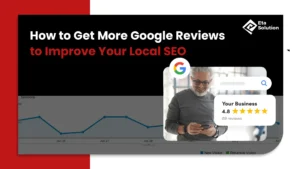
What is Keyword Research for SEO?
Are you searching for ISO-certified and proven SEO strategies too? Then you have found the right article to answer your A to Z questions regarding SEO strategies. When you think of a profitable SEO strategy, the first action you must take is how to do keyword research. Keyword research means understanding the words and phrases that people input into the search bar. Making a place into the first search results becomes important if you really want to grab the potential leads.
As an example, if you work at an SEO Company, you must check which particular words are used by your potential customers. If you are applying the proper keywords in your strategy, you can catch these individuals at the right moment. Now let me share each method to conduct an efficient SEO keyword research guide.
Types of Ways to Do Keyword Research for SEO
1. Google’s Own Tools
Google offers a suite of keyword research free tools that are powerful for SEO. Here are the most effective ones:
Google Keyword Planner
- A classic tool that provides keyword search volume, competition, and cost-per-click data.
- Best for paid search insights and finding high-volume keywords.
Google Search Suggestions
- When you type your query in Google, it suggests related searches that are trending in real time.
- It is helpful for discovering trending and long-tail keywords.
Google People Also Ask
- Displays common questions related to a search query.
- A goldmine for finding content ideas and understanding user intent.
Google Trends
- Shows the popularity of search terms over time.
- Helps identify seasonal trends and emerging topics.
Google Search Console
- Provides actual search queries that bring users to your site.
- Excellent for refining existing content and finding new keyword opportunities.
2. SEO & Keyword Research Tools
Apart from Google’s tools, specialized keyword research tools provide deeper insights. Here are some of the best:
Ahrefs
- One of the most comprehensive keyword research websites.
- Offers keyword difficulty scores, search volume, and competitor analysis.
SEMrush
- Great for competitive keyword research.
- Provides insights into keyword trends, backlinks, and PPC campaigns.
Ubersuggest
- A free keyword research methods tool and beginner-friendly.
- Generates keyword ideas and displays search trends.
Moz Keyword Explorer
- Helps find and prioritize keywords.
- Offers metrics like keyword difficulty and organic CTR.
AnswerThePublic
- Generates content ideas based on real user queries.
- A great way to find long-tail keywords and question-based searches.
3. Competitor Keyword Analysis
You can refer to your competitors who are ranking on the top for keyword research for SEO. They give a valuable source of keyword ideas. This way, you can study them:
- Use tools like Ahrefs and SEMrush to see what keywords competitors rank for.
- Identify gaps where they rank but you don’t.
- Look at their paid search ads for high-converting keywords.
4. Forums, Q&A Sites & Social Media
Platforms like Reddit, Quora, Facebook, LinkedIn, Twitter, and YouTube can help uncover search patterns and pain points.
Reddit & Quora
- Users ask genuine, real-world questions.
- Look at upvoted threads for common pain points.
Facebook & LinkedIn Groups
- Engage in industry-specific groups to discover trending topics.
Twitter & YouTube Search
- Twitter hashtags can reveal trending keywords.
- YouTube’s search suggestions highlight popular queries.
5. Long-Tail & LSI Keywords
- Long-tail keywords are more specific phrases with lower competition but higher conversion potential. Moreover, they are easy to rank.
For example, instead of “SEO services,” you should target “affordable SEO services for small businesses.”
- You should prefer Latent Semantic Indexing keywords. Because these are the related words that help search engines to understand your content better.
For example, if writing about “Apple,” LSI keywords might include “iPhone,” “MacBook,” and “Steve Jobs.”
6. Keyword Research Step by Step Using Customer Insights
Direct customer insights can reveal valuable keyword opportunities.
- Use surveys and customer feedback to understand their pain points.
- Analyze reviews of competitors to find commonly used terms.
7. Paid Advertising Insights
PPC campaigns provide real-time data on keyword effectiveness.
- Check which keywords have the highest CTR and conversions.
- Use this data to refine organic SEO efforts.
8. Wikipedia & Industry Blogs
Wikipedia is a surprisingly powerful SEO keyword strategy tool.
- Look at category pages and subtopics for content ideas.
- Industry blogs often highlight trending keywords before they become mainstream.
9. Semantic Search and AI-Driven Suggestions
Search engines today rely heavily on AI and semantic search. If you master these trends, your keyword strategy will be improved automatically.
- The BERT algorithm at Google has a more conversational understanding of search queries.
- In order to recommend keywords and content updates, AI-based tools such as Clearscope and Surfer SEO examine the content that ranks highest.
- Spoken search queries are typically longer and more conversational; voice search optimization can help target them.
10. Keyword Clustering and Topic Modeling
Current SEO is based on the concept of topic clusters instead of concentrating on individual keywords.
How to find SEO keywords effectively? Organize keywords into clusters of related terms.
For example, if the article is about “SEO company in Ahmedabad,” then it could target “local SEO services,” “best SEO consultants in Ahmedabad,” and “how to hire an SEO expert” as well.
Topic modeling helps relevancy to the search and rank for multiple keywords at the same time.
11. The Role of Zero-Click Searches
- Google displays more featured snippets, packs, and knowledge graphs in their search results, resulting in fewer clicks to sites.
- To increase your chance of being picked for a featured snippet, simply answer the question in a concise manner.
- Use structured data, sometimes referred to as schema markup, to improve the chance of improving visibility in a variety of rich results.
- Consider targeting informational keywords that would lead Google directly to an answer.
Keyword Research Mistakes to Avoid
Even seasoned marketers make mistakes. Here are some tips to avoid those mistakes:
- Ignore search intent – If you target high-volume keywords without considering user intent, you will lose potential conversions.
- Focus only on high-volume keywords – Low-competition keywords often bring better ROI.
- Overlook competitor research – Your competitors already did the hard work; learn from them.
- Not updated keyword strategy – Search trends change, so refine your strategy regularly.
- Neglect local SEO keywords – For businesses with a physical presence, local searches are crucial.
Final Take
To establish a strong SEO keyword strategy, you have to master how to do keyword research in the first place. Try to understand what users are searching for and how they behave. You can spend money on the best keyword research tools or use free keyword research methods, but the centre of focus should always be the users who are searching.
Being a reputable SEO Company in Ahmedabad, we at Eta Solutions can help you to overcome the complex world of search engine optimization. So follow these keyword research step by step strategies. We promise you’ll not only boost your rankings but also draw in the right audience for your business!
Long-tail keywords are longer and more specific phrases that people search for, like “best running shoes for flat feet” instead of just “shoes.” They usually have less competition, which means it’s easier for your website to rank higher on Google. Also, people using long-tail keywords often know exactly what they want, so they’re more likely to take action — like making a purchase or signing up.
You should focus on one main keyword for each page, along with 2-3 related keywords. This helps keep your content clear and focused, while also covering similar search terms people might use. Avoid using too many keywords — it’s better to write naturally and make the content helpful for readers.
Keyword difficulty means how hard it is to rank on Google for a certain keyword. If many strong websites are already ranking for it, the difficulty is high. You can check keyword difficulty using tools like Ahrefs, SEMrush, or Ubersuggest — they give a score (usually from 0 to 100). A lower score means it’s easier to rank for that keyword.
SEO keywords are used to improve your website’s visibility in free (organic) search results. You use them in your content to help your site show up on Google naturally.
PPC (Pay-Per-Click) keywords are used in paid ads, like Google Ads. You bid on these keywords so your ad appears when people search for them — and you pay each time someone clicks.
In short: SEO keywords help you get free traffic over time, while PPC keywords get you faster, paid traffic.
Yes, you can! There are several free tools that help with keyword research. For example:
Google Search – Start typing a query and see what suggestions come up.
Google Trends – Shows what people are searching for and how interest changes over time.
Google Keyword Planner – Free with a Google Ads account; great for finding keyword ideas.
Answer the Public – Gives you popular questions and phrases people search for.
Ubersuggest (free version) – Offers keyword ideas, search volume, and competition level.

What started as a passion for marketing years ago turned into a purposeful journey of helping businesses communicate in a way that truly connects. I’m Heta Dave, the Founder & CEO of Eta Marketing Solution! With a sharp focus on strategy and human-first marketing, I closely work with brands to help them stand out of the crowd and create something that lasts, not just in visibility, but in impact!






